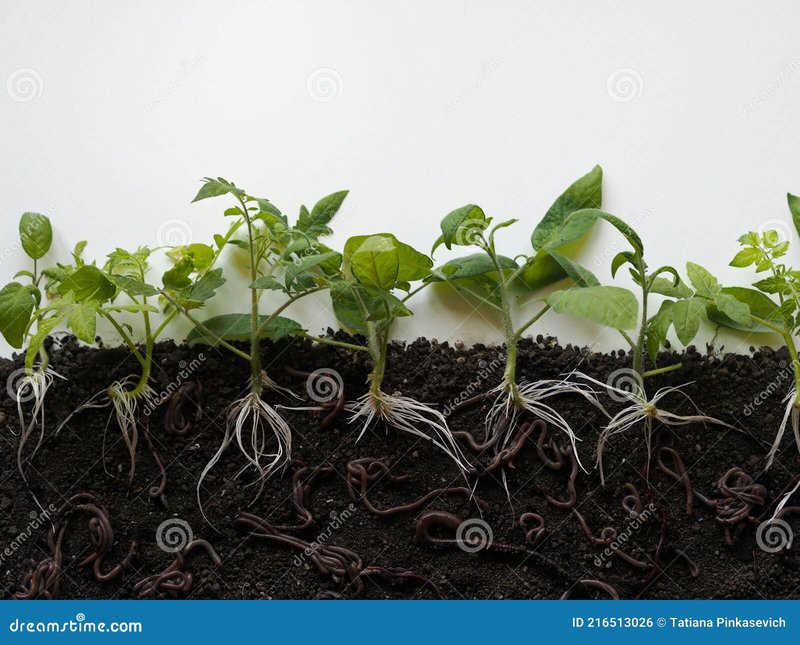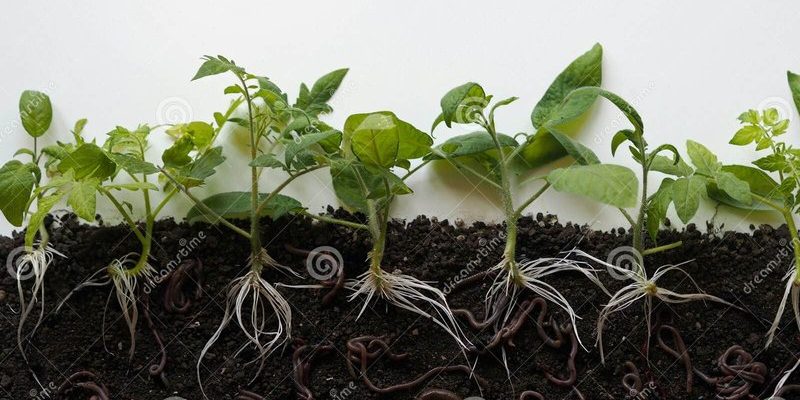
When you imagine a plant’s roots, you might picture long, winding tendrils searching through the soil for nutrients and water. But what you might not realize is that earthworms play a crucial role in shaping that world below ground. They help to aerate the soil, create nutrient-rich castings, and promote overall soil health. Here’s a deeper look at how these remarkable creatures influence root development in plants.
The Role of Earthworms in Soil Aeration
Soil aeration is like giving plants a breath of fresh air. Just as we need oxygen to thrive, plants rely on the air in the soil to promote healthy root growth. Earthworms play a key role in this process. As they tunnel through the soil, they create small channels that allow air to circulate.
These channels help to break up compacted soil, giving roots more space to grow. When roots can spread out freely, they can access nutrients and moisture more easily. Essentially, earthworms are working hard behind the scenes, making sure plants get the best possible environment to thrive.
You might be wondering how this all works. Think of it like a sponge. If a sponge is compacted, it can’t absorb water well. But when it’s expanded, it can soak up moisture effortlessly. That’s exactly what earthworm tunnels do for soil—allowing roots to absorb what they need to grow strong.
Improving Soil Structure and Nutrient Cycling
Earthworms are like little recyclers in the garden. They break down organic matter like dead leaves and plant debris into nutrient-rich castings. These castings are incredibly important because they are packed with essential nutrients that plants need to grow.
When earthworms consume organic material, they help decompose it, transforming it into a form that’s easier for plants to absorb. This natural process of nutrient cycling not only enriches the soil but also ensures a continuous supply of nutrients for plant roots.
Think of this nutrient cycling like a buffet for your plants. With all those nutrients available in the soil, roots can feast on them, leading to healthier, more robust plants. If you’ve ever wondered why some gardens flourish while others struggle, the presence of earthworms might just be the secret ingredient.
Encouraging Beneficial Microorganisms
Earthworms don’t just enrich the soil with their castings; they also create a welcoming environment for beneficial microorganisms. These microorganisms include bacteria and fungi, which play a critical role in breaking down organic matter and aiding in nutrient absorption.
When earthworms tunnel through the soil, they help mix these microorganisms into the earth. This interaction creates a vibrant ecosystem where plants can thrive. The presence of beneficial organisms can even boost a plant’s immunity against diseases!
Imagine having a supportive group of friends who cheer you on and help you when times get tough. That’s what these microorganisms do for plants, helping them stay strong and resilient. So, when earthworms are around, they’re not just aiding the roots—they’re fostering a whole community in the soil that’s vital for plant health.
The Impact of Earthworm Castings on pH Balance
Did you know that the pH of the soil can significantly affect plant growth? Most plants thrive best in slightly acidic to neutral pH levels, typically between 6.0 and 7.0. Earthworm castings help regulate the pH of the soil, making it more hospitable for plant roots.
As earthworms break down organic material, they produce castings that tend to be slightly alkaline. This means they can help balance out overly acidic soils, allowing more plants to grow successfully. If soil is too acidic, it can stunt root growth and limit the uptake of essential nutrients.
Picture a delicate balance on a seesaw—when earthworm castings come into play, they help stabilize that balance, ensuring roots can flourish. By maintaining an optimal pH, earthworms encourage a thriving ecosystem that benefits both roots and overall plant health.
Earthworms and Soil Moisture Retention
Moisture is vital for root development, and earthworms are exceptional at helping soil retain it. Their burrowing activities create spaces in the soil that allow water to infiltrate more effectively. As water seeps into these channels, it can be stored for plants to use.
Think of earthworms like tiny water reservoirs. The more deeply they tunnel, the more water can be held in the soil. This is especially important during dry spells, as plants can access moisture even when conditions seem unfavorable.
On top of that, earthworm castings enhance soil structure, allowing it to hold moisture better. It’s like upgrading to a more effective sponge—one that’s not only bigger but also more efficient at soaking up water. With this improved moisture retention, roots have a better chance of developing and growing.
In summary, earthworms are unsung heroes in the world of plant growth and root development. Their contributions—soil aeration, nutrient cycling, fostering beneficial microorganisms, pH balance, and moisture retention—create an ideal environment for roots to thrive.
If you want to see your garden flourish, consider encouraging earthworms in your soil. You might not see them working diligently below the surface, but their impact is undeniable. As nature’s little gardeners, they truly are essential for healthy plants, making sure roots have everything they need to grow strong and vibrant.
So the next time you see an earthworm, take a moment to appreciate the hard work they do beneath our feet. And remember, a healthy garden is often a garden where earthworms are abundant!

